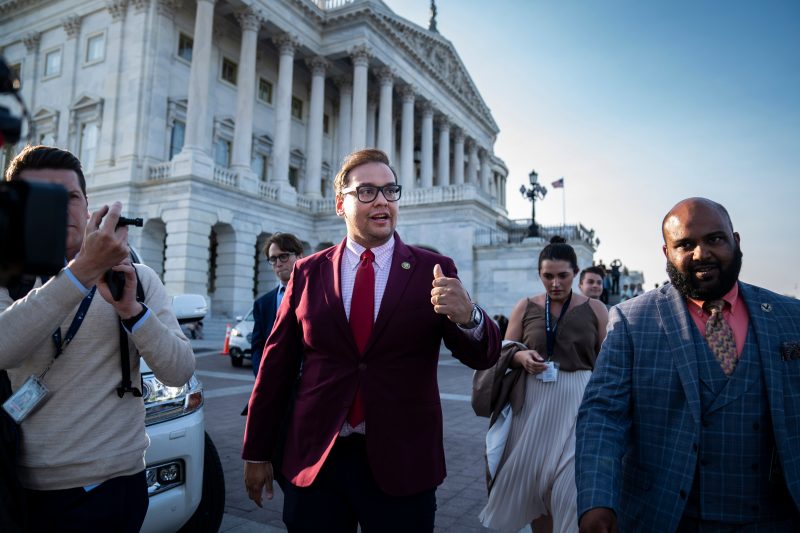The campaign of embattled Rep. George Santos (R-N.Y.), who announced in April that he is seeking reelection, reported raising little money during the past fundraising quarter, spending virtually nothing on campaigning and paying Santos $85,000 to offset some of the personal loans he said he previously made to his campaign.
Reports filed with the Federal Election Commission underscore the difficult road ahead that Santos, who is under federal indictment, has in funding a campaign that is unlikely to draw support from Republican leaders nationally.
Between April and June, the freshman lawmaker reported raising $133,078 for his primary campaign committee, while an affiliated committee said it received $16,600 between January and June.
The combined nearly $150,000 was eclipsed by a Republican primary challenger, Kellen Curry, a military veteran turned business executive, who said this week that he had raised $200,000 through his campaign committee and a political action committee.
Meanwhile, one of the several Democratic candidates vying for Santos’s seat, Zak Malamed, announced that he raised $417,000 in just the first six weeks after entering the race.
Santos reported having just more than $55,000 in the bank for his race next year in New York’s 3rd Congressional District.
Santos’s résumé unraveled after his surprise win in the Democratic-leaning district that encompasses the North Shore of Long Island and parts of Queens. Several Democrats have already lined up for next year’s race.
In May, Santos was charged with a host of federal financial crimes, including defrauding his donors, using their money for his personal benefit and wrongfully claiming unemployment benefits. His actions have triggered multiple other investigations, including one by the House Ethics Committee.
Santos has admitted to lying about his education and work history — as well as other aspects of his biography — but questions remain about the source of his wealth, which he’s reported using to help fund his previous campaign.
With the $85,000 payment to Santos, his campaign report says he is still owed $530,000 by his campaign. A $100,000 loan reported last quarter was not listed on his most recent filing, however.
The $85,000 loan repayment was by far the largest expense reported by the Santos campaign during the quarter.
The additional roughly $17,000 in reported spending by the campaign included more than $10,000 to WinRed, a firm that helps collect small-dollar donations; more than $2,300 for legal costs; $3,500 for “compliance consulting”; nearly $600 for meals and lodging at a Washington hotel; and $540 for airfare.
More than 30 donors gave the legal maximum of $3,300, the report says. The occupations listed for those donors include several retirees, college students and a “parttime job/casher” (sic).
Only about 1 in 5 of Santos’s identified donors have New York addresses. Addresses in California, New Jersey and Texas were as common.
Santos’s fundraising for the quarter was meager compared with other New York Republicans running in swing districts.
Rep. Michael Lawler (R-N.Y.), who narrowly won last year, announced this week that he raised more than $900,000 during the past quarter and had $1.5 million in the bank.
In the federal case pending against him, Santos faces seven counts of wire fraud, three counts of money laundering, one count of theft of public funds and two counts of lying to the House of Representatives on financial forms.
Wire fraud, the most serious charge, carries a penalty of up to 20 years in prison. If Santos is found guilty of multiple counts, a judge would decide whether he should serve his sentences concurrently or consecutively.
House Speaker Kevin McCarthy (R-Calif.) has said in recent months that he wouldn’t support Santos for reelection and that he shouldn’t run, but he voiced confidence that Republicans could hang onto his seat.
Azi Paybarah contributed to this report.








